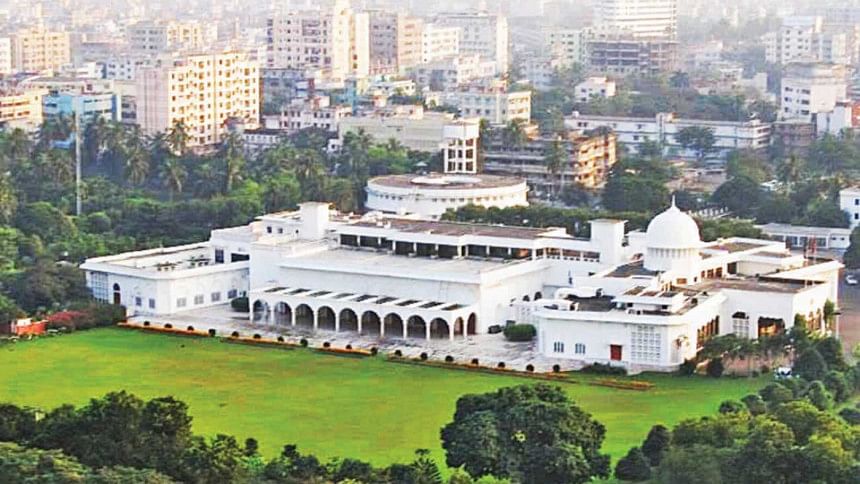Mr President, Can't you do Something?

Last Monday, Nagorik Samaj, a platform of civil society members sent separate letters to President Abdul Hamid, Prime Minister Sheikh Hasina and the BNP chief Khaleda Zia requesting them to take initiative to hold talks to resolve the ongoing political crisis. In the letter to the president, civil society members have made an appeal to the president, the guardian of the state, to play a special role in bringing the two feuding sides to the table. Khaleda has long been urging the government to sit for a dialogue. The BNP-led alliance's demand for talks is aimed at holding an early parliamentary election. An early election is the only possible means for the alliance to return to power.
But the Sheikh Hasina-led government has continuously been rejecting the call for talks. Even some ministers and ruling AL's leaders have publicly been blasting the civil society members for their call for dialogue. The reason for such rejection is clear. The government does not want to go for an early election. It wants to remain in office for a full five year term.
Nobody can support the spate of violence and the ruthless killing of people during the opposition's ongoing programmes. Then, can anyone, on the other hand, support the ruling Awami League's desire to stay in power for full term? Supporting such an idea is also dangerous. It means that if any party grabs power regardless of people's mandate should be allowed to complete its tenure. If so, political parties will never care for free and fair election and people's voting rights.

Under such a situation, the civil society has put the ball in the president's court requesting him to play it now for the betterment of the people. All eyes now will focus on the Bangabhaban to know whether he makes any effective move. It is a test for President Hamid whether he would be able to do something extraordinary to break the political deadlock. Will he make any wise move in line with the people's expectations? Or will he keep listening to the prime minister and acting on the advice of the premier?
Hamid's predecessors Abdur Rahman Biswas, Iajuddin Ahmed and Zillur Rahman were also widely expected to play a role in breaking the political impasse. Hamid was expected to do something before the January 5 one-sided parliamentary election.
Everybody knows that the president is the titular head of the state in the parliamentary form of government. And he performs all his duties upon the advice of the prime minister, except for the appointments of the chief justice and the prime minister. But this is not the whole truth. His office can play an important role during extraordinary situations. The president himself may advise the premier to take steps to resolve the crisis. He has significant powers to draw the attention of the government to any crucial national issue under Article 48 (5) of the constitution. According to this constitutional provision, the premier shall keep the president informed on matters of domestic and foreign policy, and submit for the consideration of the Cabinet any matter which the president may request her to refer to it.
Analysing this particular power of the president, former attorney general Mahmudul Islam in his book Constitutional Law of Bangladesh writes: On paper, this may not appear to be a power at all, but it has considerable importance. A man of high stature, integrity and experience holding the office of the president can exert great influence on the executive government by way of advice and counseling and play a great role in building a bridge between the government and the opposition.
The president himself also has taken oath to preserve, protect and defend the constitution. The ongoing political crisis keeps undermining the supremacy of the constitution. So, now, it is time for President Abdul Hamid to play an extraordinary role in saving the constitution, the country and people from the unholy politics and a looming danger.
The writer is Senior Reporter, The Daily Star.

 For all latest news, follow The Daily Star's Google News channel.
For all latest news, follow The Daily Star's Google News channel. 



Comments